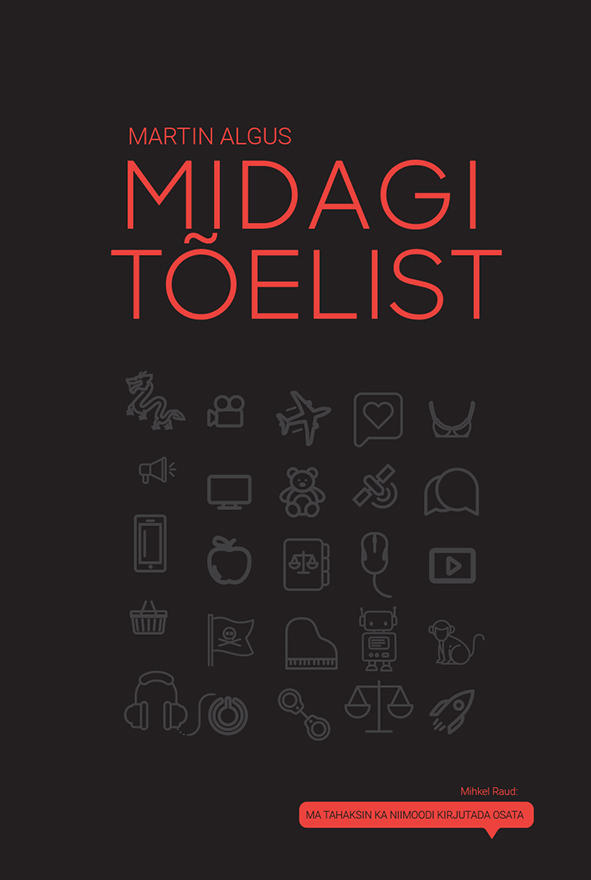Varrak 2018, 179 pp
ISBN 9789985344507
Martin Algus’s novel Something Real, which received the Cultural Endowment of Estonia’s 2019 Award for Prose, may indeed be the author’s debut in the genre, but he is anything but a newcomer to writing. Algus is a trained actor and has worked professionally in theater for eight years (in addition to acting in films and TV series), but has long been known throughout Estonia as a dramaturge. His writing career indeed began with translating plays into Estonian (such as works by Mark Ravenhill, Sarah Kane, and Brian Friel from the English, as well as by the Presnyakov brothers from the Russian) and he received his first prize – the 2004 Aleksander Kurtna Translation Award – for his translation of contemporary drama. Thereafter, he began penning his own plays and has since won several playwriting competitions as well as becoming a recognized film and television screenwriter in high demand. Algus has a very broad repertoire and at the moment is one of Estonia’s most insightful playwrights: his drama targets the most tender points of society with a British “in-yer-face”-type style.
Something Real actually comprises a hybrid of genres – a play of same name was staged in tandem with the book’s release. The novel is, of course, slightly denser and more detailed than the play, but their substance is identical: both consist of the alternating monologues of two men. Each version leaves a different impression: whereas the play features rather little action and the retelling of events, the book places the reader directly in the heart of the plot thanks to the two rotating narrators. Dissimilarities in the characters’ personalities emerge from their respective dictions: one’s is more animated and educated, the other’s plainer and more colloquial. Thus, the two respectively represent a prosaic play and a dramatic novel. The thrilling work is nevertheless quite simple in content. Leo has lost the sense of reality in his marriage and life in general, which ultimately leads to online forums where minors offer sex. He arranges a meeting but ends up victim to blackmail: Karl, an ex-convict, has put his own daughter out as bait, snaps a few compromising photos of Leo, and then extorts him for money. The rest of the plot unfolds from there.
Algus traces, with exceptional psychological credibility, how both men arrive at the decisions that cross their own personal boundaries: one seeking an unprecedented emotional experience, the other a life of greater material ease. Worth noting is how the author’s own position doesn’t step in with any moral judgements, allowing the characters to unfold in all their human ambiguity as well as their limitations and unpredictability. Algus’s writing is simultaneously bold and delicate, fascinatingly constructed from a purely narrative point of view. Although the topics he addresses – addiction to online porn, pedophilia, and slavery by blackmail – might provide a tempting opportunity to appall one’s readers, the work remains finely and pleasantly realistic. The characters do not render their vices in sharp relief, but are complex lifelike individuals. The reader may indeed be shocked by the two men and might rightfully condemn them, but he or she may also feel sympathetic.
The author himself has said that while writing Something Real, he was intrigued by the compounding sense of loneliness that is caused by today’s barrage of virtual opportunities, which only exacerbates a wide range of addictions. Something Real is, in a sense, a “danger novel”, as it’s easy to manipulate a mass of people distanced from reality and plagued by addictions; however, Algus does not explicitly develop that aspect of the novel. The work also received the Eduard Vilde Award, which recognizes new Estonian works that address contemporary social problems.
With its array of grim topics and brisk, riveting monologues, Something Real touches upon several classic human issues: What are the criteria for good and evil? What does it mean to live an authentic life? And how is one’s personality tied to their core, as well as to those of others?

